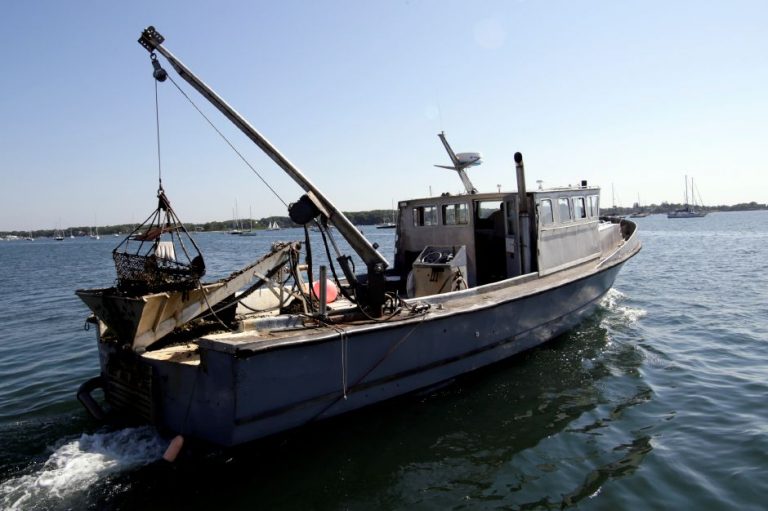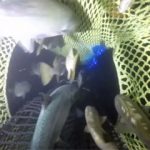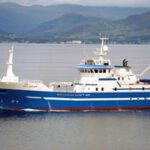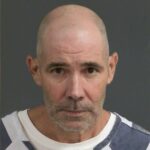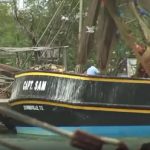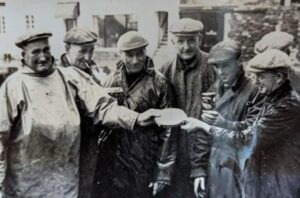Tag Archives: U.S. Rep. Seth Moulton
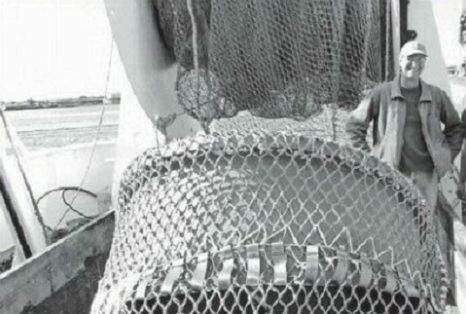
Jim Kendall – Finding Common Ground
With regard to the letter from Sam Novello posted on Fisherynation.com, Finding Common Ground off to a Bad Start, he very eloquently laid out some of the faults, errors, and out and out incompetence of the Northeast Fisheries Science Center with respect to their continued mismanagement of the Northeast fisheries stock assessments. I know from past work and associations with the NEFSC that this has been going on for so long that they likely now believe their own Mantra about their science being the best (and only way) in which to compile the NE groundfish stock assessment. Unfortunately groundfish is not their only problematic stock assessment. >click to read< 16:32
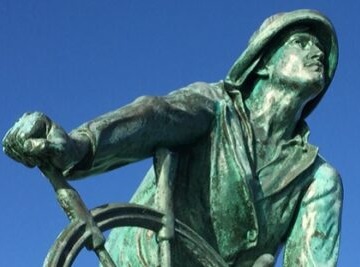
Finding Common Ground Off to a bad start
The opinion piece “Finding common ground on fisheries data”, reflects the biggest impediment to solving the problems it addresses – lots of false assumptions. First and foremost is blaming reductions in survey fish stocks on “overfishing”. Yes, overfishing did occur when massive, mostly foreign, commercial fishing operations scooped up fish stocks indiscriminately, often purging the bottom of everything needed to sustain acquatic life. But this was not done by the small boats of the New England fishing communities, which now, after thirty years of draconian restrictions, are no longer capable of catching enough fish to sustain their boats and their families — never mind “overfishing”. >click to read<, Capt. Salvatore “Sam” Novello, Gloucester, Mass. 08:30
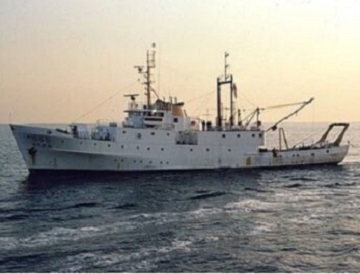
Groundfish Trawl Task Force – Finding common ground on fisheries data
Building consensus between commercial fishermen, conservationists and marine regulators is no easy task. But a long, patient effort led by Congressman Seth Moulton’s office seems to be making progress,,, For years, NOAA has relied on data from two research trawlers. The Albatross IV was used between 1963 and 2008, and the Bigelow since then. NOAA currently combines data from both vessels when making regulatory decisions. That is despite the often-flawed data supplied by the Albatross IV over the years. The Albatross IV was at the center of the “Trawlgate” controversy of the early 2000s, when NOAA scientists had to concede the trawler used the wrong nets, likely missing hundreds of thousands of fish. Yet regulators stood by that data to set low catch limits based on the admittedly flawed numbers. >click to read< 10:25
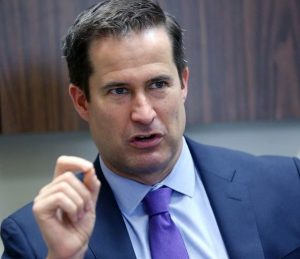
Moulton’s Trawl Task Force wins $500K to count groundfish
“When I took office, I was told I had to make a choice: stand with the fishermen or the environmentalists. I thought that was crazy because both want, and fishermen need a sustainable fishery. So instead, we rallied both groups around getting better science, and that is exactly what this historic partnership has produced,” Moulton said in a prepared statement. “This work will protect the livelihoods of thousands of people, it will protect our ocean, and it will preserve New England’s identity as a place where people can make a living fishing.” >click to read< 08:44

Moulton: NOAA cuts ‘recipe for disaster’
President Donald Trump’s proposed budget for the National Oceanic and Atmospheric Administration cuts more than $1 billion from the agency that manages the nation’s fisheries and coastal ecosystems, explores space and forecasts weather and changing environmental conditions. On Thursday, U.S. Rep. Seth Moulton of Salem criticized the proposed cuts, saying the proposed 14 percent decline reflects the administration’s shallow understanding of the importance of NOAA’s programs to coastal communities,,, He characterized the president’s budget proposal as a “a guideline” and said it will be up to Congress to determine the ultimate levels of funding through the appropriation process. >click to read< 20:31
Our view: Finding common ground on monitors
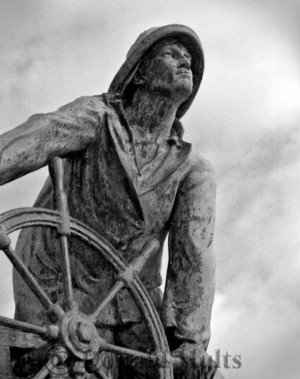 It takes a lot to bring Democrats and Republicans together on any issue in these days of heightened, highly partisan politics. It seems, however, that the National Oceanic and Atmospheric Administration has done the trick. Sixth District U.S. Rep. Seth Moulton and 16 of his fellow New England congressmen — 12 Democrats, four Republicans and an independent — united last week to call on the agency to delay or call off its plans to force fishing vessel permit holders to pay to have someone looking over their shoulder as they work. Read the op-ed here 08:00
It takes a lot to bring Democrats and Republicans together on any issue in these days of heightened, highly partisan politics. It seems, however, that the National Oceanic and Atmospheric Administration has done the trick. Sixth District U.S. Rep. Seth Moulton and 16 of his fellow New England congressmen — 12 Democrats, four Republicans and an independent — united last week to call on the agency to delay or call off its plans to force fishing vessel permit holders to pay to have someone looking over their shoulder as they work. Read the op-ed here 08:00
Moulton unites region to reform at-sea monitoring
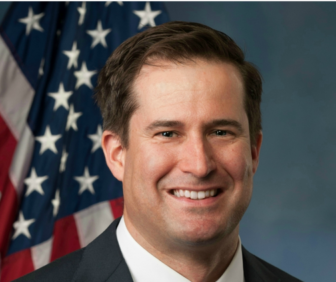 U.S. Rep. Seth Moulton has expanded efforts to reform at-sea monitoring for groundfishing vessels, corralling a regional and bipartisan group of federal legislators to urge NOAA to accept changes already approved by the New England Fisheries Management Council and supported by NOAA Regional Administrator John Bullard. Moulton and 16 other members of Congress — totaling 12 Democrats, four Republicans and one Independent from five New England states — wrote to NOAA Administrator Kathleen D. Sullivan expressing support for the council motions approved in December and again voicing their opposition to the National Oceanic and Atmospheric Administration’s plans to transfer at-sea monitoring (ASM) costs to permit holders sometime early this year. Read the article here 12:12
U.S. Rep. Seth Moulton has expanded efforts to reform at-sea monitoring for groundfishing vessels, corralling a regional and bipartisan group of federal legislators to urge NOAA to accept changes already approved by the New England Fisheries Management Council and supported by NOAA Regional Administrator John Bullard. Moulton and 16 other members of Congress — totaling 12 Democrats, four Republicans and one Independent from five New England states — wrote to NOAA Administrator Kathleen D. Sullivan expressing support for the council motions approved in December and again voicing their opposition to the National Oceanic and Atmospheric Administration’s plans to transfer at-sea monitoring (ASM) costs to permit holders sometime early this year. Read the article here 12:12
Moulton, reps press NOAA on monitors
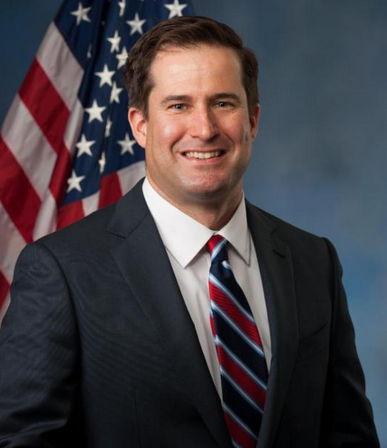 “We made it very clear that we don’t support the costs of at-sea monitoring being shifted to the fishermen,” Moulton said after the meeting. Moulton, along with fellow representatives William Keating, D-Mass., and Chellie Pingree, D-Maine, organized the meeting to help find an alternative to the National Oceanic and Atmospheric Administration’s plan to stop paying for on groundfish boats and shift the costs — estimated at $710 per day per covered vessel — to the federal permit holders. Read the rest here 07:59
“We made it very clear that we don’t support the costs of at-sea monitoring being shifted to the fishermen,” Moulton said after the meeting. Moulton, along with fellow representatives William Keating, D-Mass., and Chellie Pingree, D-Maine, organized the meeting to help find an alternative to the National Oceanic and Atmospheric Administration’s plan to stop paying for on groundfish boats and shift the costs — estimated at $710 per day per covered vessel — to the federal permit holders. Read the rest here 07:59
U.S. Rep. Seth Moulton gets backing from Keating, and Lynch for observer coverage from NOAA’s Asset Forfeiture Fund
 On Thursday, the freshman Democrat from the Massachusetts 6th Congressional District announced he and two other New England representatives (Reps. William Keating, D-Mass., and Congressman Stephen Lynch of South Boston , secured an appropriations commitment to allow (force) NOAA to continue paying for observer coverage on commercial fishing boats. That amendment mandates that money contained in NOAA’s Asset Forfeiture Fund will be used for fishery research and stock assessments; at-sea and shoreside monitoring; Read the rest here 08:07
On Thursday, the freshman Democrat from the Massachusetts 6th Congressional District announced he and two other New England representatives (Reps. William Keating, D-Mass., and Congressman Stephen Lynch of South Boston , secured an appropriations commitment to allow (force) NOAA to continue paying for observer coverage on commercial fishing boats. That amendment mandates that money contained in NOAA’s Asset Forfeiture Fund will be used for fishery research and stock assessments; at-sea and shoreside monitoring; Read the rest here 08:07
NOAA and the fishermen: Across the great divide?
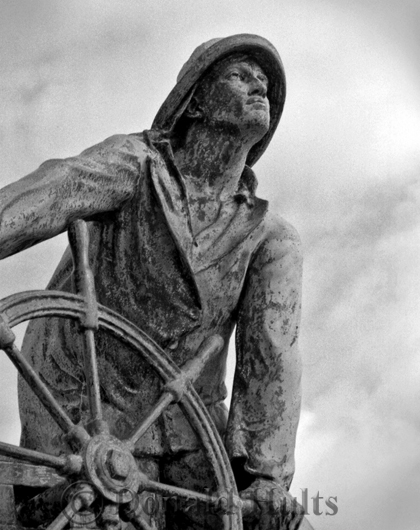 The sampling remains microscopically thin, so only time will tell whether the compromise forged by the commercial fishing industry and NOAA Fisheries on the Gulf of Maine interim cod measures will stand as a template for the future. Even given that uncertainty of what lies beyond the horizon, the lack of rancor in modifying the emergency cod measures was a refreshing departure from the antagonistic tango federal regulators and the fishermen have danced in the past. Read the rest here 08:59
The sampling remains microscopically thin, so only time will tell whether the compromise forged by the commercial fishing industry and NOAA Fisheries on the Gulf of Maine interim cod measures will stand as a template for the future. Even given that uncertainty of what lies beyond the horizon, the lack of rancor in modifying the emergency cod measures was a refreshing departure from the antagonistic tango federal regulators and the fishermen have danced in the past. Read the rest here 08:59

































